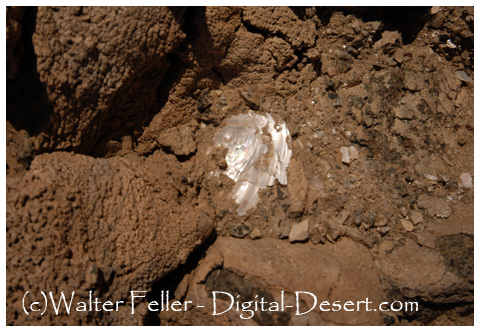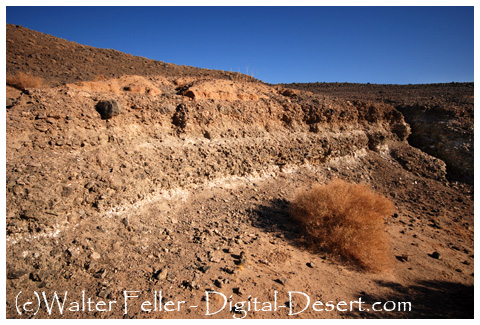Fossil Shell Layers
Late Holocene Lakes and Horticulture in the Mojave SinkClaude N. Warren - Professor Emeritus, University of Nevada, Las Vegas
The late Holocene climate produced perennial lakes in the Mojave Sink. These lakes supported Anodonta, whose shells constitute a major component of late prehistoric middens in the area. These lakes would have supported aboriginal horticulture during two periods. Reports of prehistoric corn cobs from the area support this suggestion. During these same periods, associated ceramics and other artifacts reflect strong influence in the area from Four Corners area Anasazi during the earlier period, and from the Lower Colorado Hakataya during the later period. During both of these periods, the Turquoise Mountains were actively mined. The turquoise was transported east and southeast; none is reported from the California coast. It is suggested here that horticulture was practiced in the Mojave Sink, sustaining the miners and supporting Anasazi and Hakataya control of the turquoise mines.

